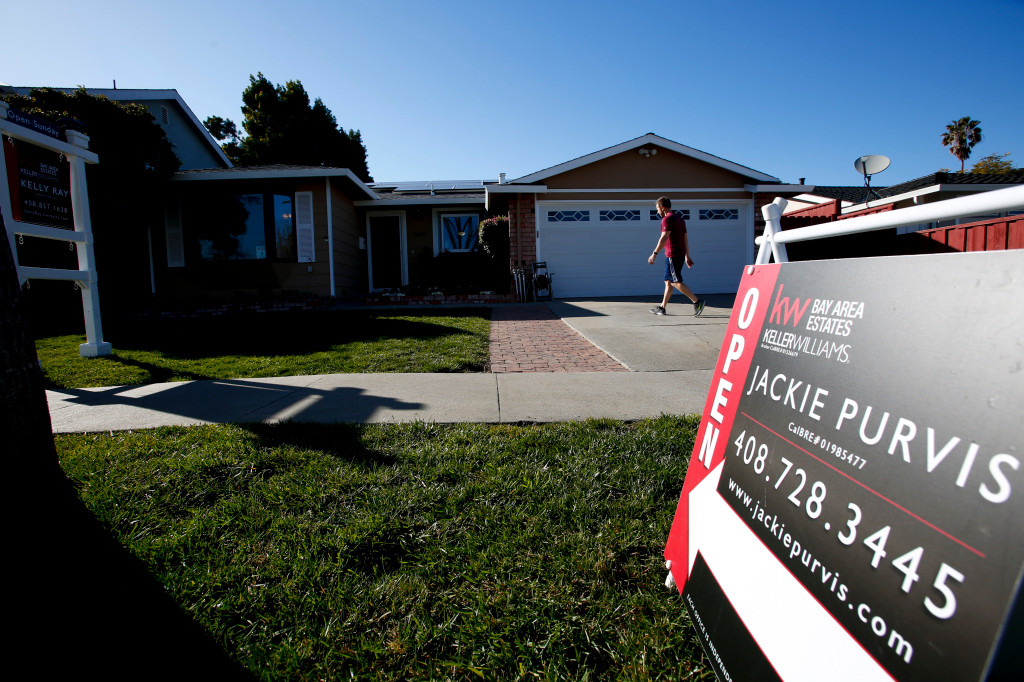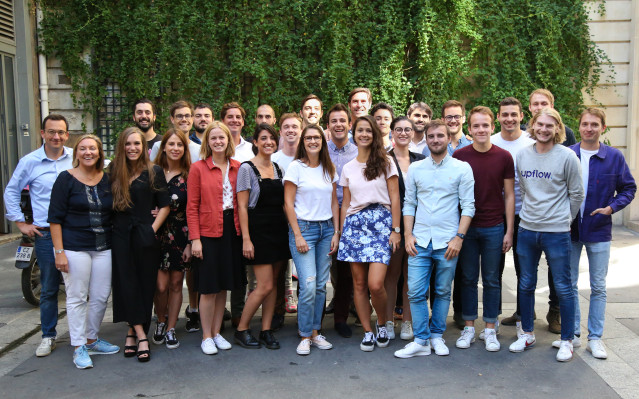Every single home in San Francisco listed for sale on Thursday, nearly a third of all affordable homes in the Bay Area, or about half of the least expensive houses in San Francisco and the East Bay: That’s how many homes newly-minted millionaires at Lyft can buy with their IPO cash.
That is, if all of them went out to buy homes, say experts at Redfin, a real estate brokerage firm. Lyft’s stock was initially priced at $72 per share, meaning current and former employees now collectively hold nearly $1.5 billion worth of stock, Redfin estimates. But, the company is just the first of several, including Uber, Slack, Pintrest and Airbnb, that are all expected to go public this year or next.
It’s a somewhat unprecedented situation, says Daryl Fairweather, Redfin’s chief economist. The only real comparison is New York City, home to the country’s largest and most prominent financial institutions, she said. But, unlike New York City, which responded to increased wealth and demand from a growing economy by building taller buildings, San Francisco and the Bay Area, in general, has not.
“San Francisco hasn’t updated their zoning laws, they’ve haven’t built much new housing and there has been a very ‘not-in-my-backyard’ backlash to new development,” she said.
There were only 737 homes listed for sale in February in San Francisco, Fairweather said, and only 623 homes listed for sale on Thursday. That’s not enough to satisfy existing demand, let alone any new influx of would-be home purchasers.
When Facebook took its company public in 2012, sale prices in Palo Alto skyrocketed, rising 50 percent in just one year, Fairweather said. That’s compared to 12 percent in San Francisco and 6 percent across the country, which, by then, was beginning to recover from the Great Recession.
While it’s hard to separate out how much of that increase could be attributed to Facebook employees’ new, liquid cash, and how much was due to the tech wealth already growing in the company’s backyard, Fairweather said, “It’s just far and above anything you’d normally see in home values.”
“It was the most price growth we’ve see in Palo Alto since we started tracking the numbers in 2012,” she said.
But, whether the influx of the nouveau riche will all be concentrated in San Francisco and the Bay Area — or whether its reach will spread up the West Coast or even outside the state — remains to be seen, Fairweather said. In a recent poll conducted for this news organization and the Silicon Valley Leadership Group, about 44 percent of likely voters said they’re thinking of moving out of the Bay Area in the next few years, with 6 percent saying they have definite plans to leave this year.
The most popular destination for would-be expats, based on Redfin users searching for homes outside the Bay Area, is Sacramento. For those looking out of state, the most popular destination is the Seattle area, according to the real estate broker. Homes in both those cities sell for significantly less than San Francisco — where the average going price is $1.2 million — compared to $385,000 in Sacramento or $546,000 in Seattle.
“Typically, when someone gets a big windfall of cash, it motivates them to make a big life decision they may have been putting off,” Fairweather said, adding that could include purchasing a dream home elsewhere.
And, while Manhattan was able to remain the financial capital of the country by building taller buildings and allowing the industry to grow, Fairweather said there’s already evidence the Bay Area’s resistance to growth is prompting the tech industry to splinter, with new tech nodes emerging in Austin, Seattle and other cities across the country, where newly wealthy tech workers might find jobs — and more affordable homes.
But no matter how many people leave, one thing is clear, Fairweather said: “Prices will go up in San Francisco. I would bet money on that.”
How many homes can cash-flush Lyft employees purchase in the Bay Area?
Redfin used Lyft’s S-1 filing, combined with Redfin data, to determine the number of single-family homes, townhouses and condos that current and former Lyft employees could hypothetically purchase with their newly-minted stock wealth from the company’s IPO. That turned out to be approximately 8,600,322 shares, multiplied by Lyft’s share price at $72 per share, which was then added to $838.7 million in vested stock options as of Dec. 31, 2018. They totaled the listed price for active home sales in the respective areas.
- $1.446 billion: All 623 homes listed for sale on Thursday in San Francisco, with roughly $12 million to spare
- $1.457 billion: Nearly half of the least expensive homes for sale — 2,346 homes — in the San Francisco-Oakland-Hayward metropolitan statistical area, as defined by the U.S. census
- $1.355 billion: The top 1 percent of homes for sale by list price, which includes 95 homes, in the San Francisco-Oakland-Hayward metropolitan statistical area for $1.355 billion
- $1.408 billion: Nearly one-third of the least expensive homes for sale — 3,180 homes — in the San Jose-San Francisco-Oakland combined statistical area
- $1.428 billion: The top 0.8 percent of homes for sale by list price, which includes 74 homes, in the San Jose-San Francisco-Oakland combined statistical area










